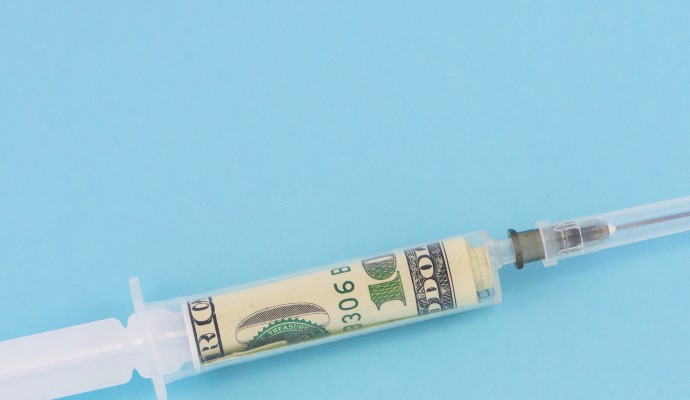OIG: Do Not Charge, Balance Bill Patients for COVID-19 Vaccines
HHS OIG released a message to healthcare providers after receiving complaints from patients that they are being charged by providers for COVID-19 vaccines.

Source: Getty Images
- Healthcare providers should not charge or balance bill patients for getting the COVID-19 vaccine, the Office of Inspector General (OIG) at HHS recently warned.
In an April 15th message, the federal watchdog reminded vaccine providers that vaccines being provided by the federal government to providers must be administered at no cost to patients per the Centers for Disease Control and Prevention's (CDC's) COVID-19 Vaccination Program.
Currently, all COVID vaccines in the US have been purchased by the US government for administration exclusively by providers enrolled in the COVID-19 Vaccination Program, the CDC states on its website at the time of this article’s publication.
The program stipulates that all participating organizations and providers must administer the vaccines with no out-of-pocket cost to recipients. This includes fees for office visits or other charges if the COVID-19 vaccination is the sole medical service provided.
Additionally, providers may not seek any reimbursement from patients for the vaccination through balance billing.
Provider compliance with the program also includes not denying anyone vaccination based on insurance or network status and not requiring additional medical services at the time of vaccination.
However, OIG stated in its latest message on the program and provider compliance that it is aware of complaints filed by patients about charges by providers when getting their COVID-19 vaccines.
“Providers that charge impermissible fees must refund them and ensure that individuals are not charged fees for the COVID-19 vaccine or vaccine administration in the future,” the watchdog wrote in the message.
OIG also said that, along with law enforcement partners, it has investigated a “steady stream of allegations of COVID-19-related fraud and abuse.”
Some of the fraud and abuse schemes involve requests for payments to get a vaccine, the watchdog stated.
While vaccine providers cannot charge or seek reimbursement from patients for the vaccines, they can bill third-party payers for an administration fee, depending on the payer’s applicable medical billing rules. That includes Medicare, Medicaid, the Health Resources and Services Administration’s (HRSA’s) COVID-19 Uninsured Program, and private payers, OIG stated.
CMS has released guidance about vaccine-related fees and provider charges.
The guidance states that Medicare does cover the COVID-19 vaccine and that providers cannot charge beneficiaries for an office visit or any other fee for the vaccination. It also advises beneficiaries who have been charged for vaccination to report the activity as suspicious and ask providers for a refund.
Previous communications from CMS also state that the Medicare reimbursement rates for administration of a COVID-19 vaccine is $40 for a single-dose vaccine and approximately $80 for vaccines requiring two doses.
The rates are significantly higher than earlier during the pandemic when reimbursement was about $28 for a single dose of a vaccine and $45 for two doses of a vaccine.
CMS increased the rates in March to accelerate vaccine rollout across the country.
“This new and higher payment rate will support important actions taken by providers that are designed to increase the number of vaccines they can furnish each day, including establishing new or growing existing vaccination sites, conducting patient outreach and education, and hiring additional staff,” the agency said in an email to providers.
Several states are also reimbursing at similar rates for Medicaid beneficiaries who receive a vaccine.
Private payers that must comply with the Affordable Care Act are also required to cover the COVID-19 vaccine regardless of whether the vaccine provider is within the patient’s network, according to the Coronavirus Aid Relief, and Economic Security (CARES) Act.
Reimbursement rates for administering a COVID-19 vaccine will vary from payer to payer.
Finally, vaccine providers administering doses to uninsured patients can submit claims to the HRSA’s COVID-19 Uninsured Program, which will reimburse generally at the Medicare rate.
Provider compliance will be key with this program though. HHS has already flagged a California outpatient clinic for receiving more government funds for treating uninsured COVID-19 patients compared to other providers.
The incident may indicate greater HHS scrutiny ahead with the reimbursements, especially in light of the Justice Department’s recent emphasis on pandemic-related fraud.
